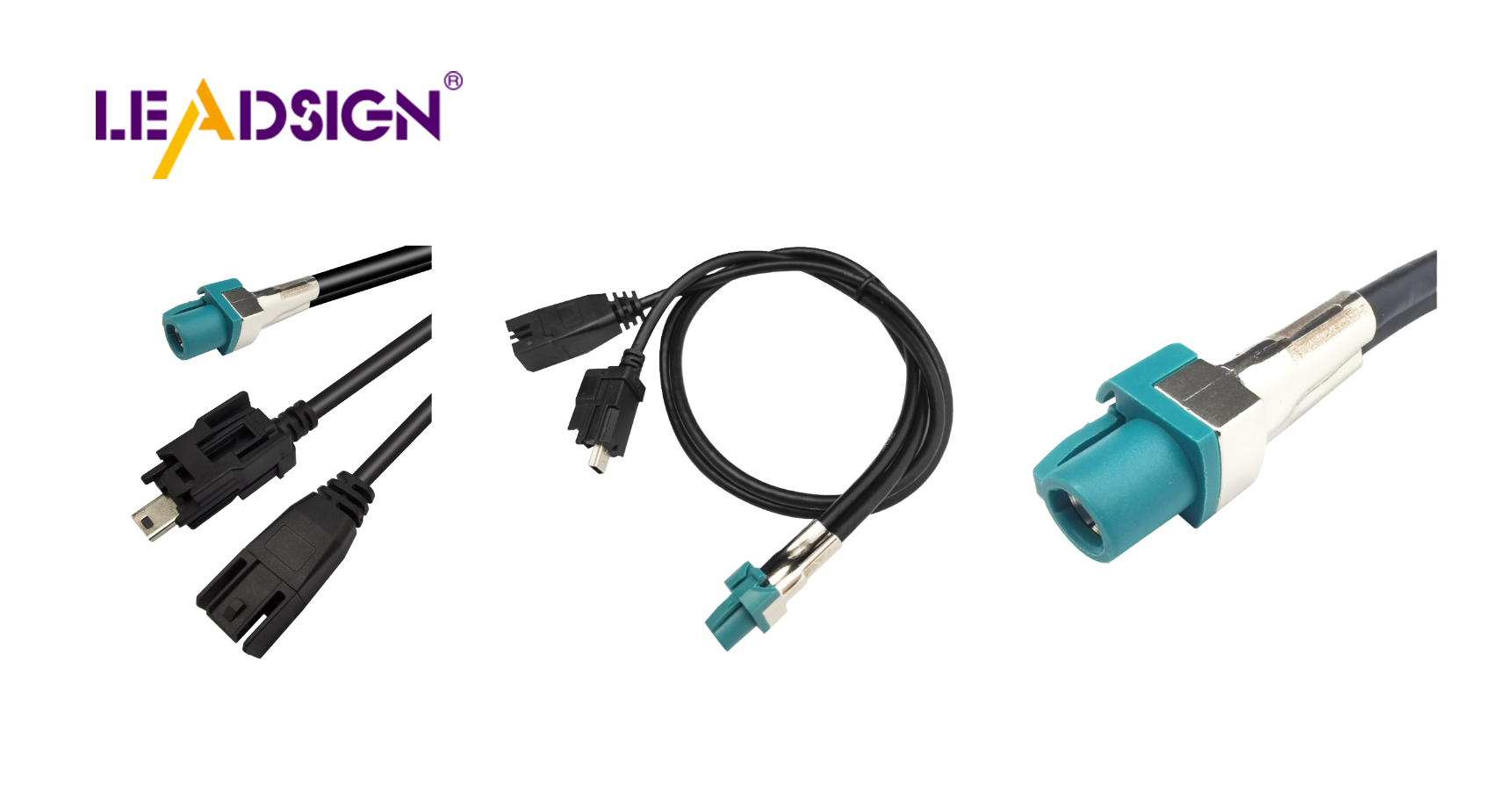What Are the Different Types of Automotive Wiring Connector Types

Automotive electrical connectors are crucial in today's vehicles. They ensure that car systems operate efficiently and seamlessly. These connectors link components, enabling communication and functionality. Without reliable connectors, vehicles would face numerous electrical issues, potentially leading to safety concerns and costly repairs. High-quality connectors maintain robust connections, enduring in challenging environments. Understanding automotive electrical connectors types is essential for selecting the right ones for vehicles, ensuring optimal performance.
Overview of Car Wiring Connectors
What are wiring connectors?
Wiring connectors are important parts in cars. They connect wires so electricity can move between car parts. These connectors have different shapes and sizes for different uses. They keep connections strong, helping signals move well in the car.
Why are they important in cars?
Connectors help car parts talk to each other. They connect things like sensors, lights, and controls. Without them, cars would have trouble with electric connections. This could cause problems or make systems stop working. Good connectors stop these issues, keeping cars running safely.
Basic Parts of Connectors
Pins and Sockets
Pins and sockets are key parts of connectors. Metal pins fit into sockets to make a connection. They fit tightly to avoid coming apart easily. Good pins and sockets don’t rust or wear out fast.
Housing and Insulation
The housing holds and protects the connector’s parts. It covers pins and sockets from water and dirt. Insulation stops electricity from jumping between wires. Together, they make connectors last longer in cars.
Types of Car Electrical Connectors
Blade Connectors
Description and Features
Blade connectors, also known as spade connectors, have a flat metal piece. This shape lets them slide into a matching slot easily. They make strong and safe connections. The metal part helps electricity flow well. Blade connectors come in different sizes for various wire thicknesses. They often have covers to stop accidental short circuits.
Common Uses
Blade connectors are used in many car parts. They link wires to things like switches, relays, and fuses. Mechanics like them because they are easy to use and dependable. You can also find blade connectors in car audio systems for speakers and amplifiers. Their flexibility makes them popular in car electrical connections.
Ring and Spade Terminals
Description and Features
Ring and spade terminals securely connect wires to screws or studs. Ring terminals make a full circle, while spade ones have an open end. This design makes it easy to attach or remove them. Both types hold tightly, reducing the chance of coming loose from shaking. They usually have a crimping area for firm wire attachment.
Common Uses
Ring and spade terminals are often used with batteries. They create a steady link between the battery and the car's electric system. These terminals also connect wires to grounding spots, ensuring good electric flow. In car electrical connections, they help keep everything working well.
Butt Connectors
Description and Features
Butt connectors join two wires end-to-end with a tube shape that has metal inside. Users put wires into each end then squeeze the connector tight for security. Butt connectors often have covers to protect against water and rusting. They offer a tidy way to extend or fix wiring.
Common Uses
Butt connectors are great for fixing broken wires without soldering them together. In car electrical connections, they help lengthen wire bundles when needed. Butt connectors also work well in small spaces where other types might not fit easily. Their simple design makes them useful in car repairs.
Multi-pin Sealed Connectors
What They Are and How They Work
Multi-pin sealed connectors are important in car wiring. They have many pins in one piece, connecting lots of wires at once. Each pin stays separate to stop electric problems. Strong materials make them last in tough places. The seal keeps out water, dust, and dirt. This makes them perfect for cars and helps keep connections working well. Multi-pin sealed connectors
Where They're Used
These connectors are used a lot in cars. They link big systems like engine controls and radios. They help different parts talk to each other smoothly. Car makers like them because they handle lots of data and power well. You also find them in safety parts like airbags and brakes where they must work right. Their strength and usefulness make them key in today’s cars.
Picking the Right Connector
Choosing the right connector for a car is important. It helps the car's electrical system work well. When picking connectors, think about a few things.
Things to Think About
Electrical Needs
A car's electrical needs are key when picking connectors. Each connector must handle the right voltage and current. If a connector can't handle it, problems can happen. So, knowing what the system needs is very important.
Weather Conditions
Weather affects which connector to pick too. Cars often face tough conditions like heat and rain. Connectors need to handle these changes well. Good sealing and insulation help them last longer and stay strong.
Mistakes to Avoid
Wrong Size
Picking the wrong size is a common mistake with connectors. A small connector might not fit right, causing loose links. A big one can make installing hard. Getting the right size for wires is crucial for a snug fit.
Bad Material Choice
Bad material choice can cause problems too. Cheap materials might rust or break fast. Better materials like nylon last longer and work better under pressure.
Choosing the right car wiring connector is very important. Connectors keep electrical connections strong, which helps cars work well. They stop electrical problems that might cause safety issues or expensive fixes. Good connectors last in tough conditions, keeping connections firm. Knowing about different connector types and uses helps people choose wisely. This knowledge helps pick connectors that fit electrical and weather needs, making cars more reliable and efficient.
See Also
Exploring the Fundamentals of HSD Connectors in Automotive Sector
The Significance of Fakra Connectors in Contemporary Automobiles
Uncovering the Benefits of HFM Connectors in Auto Sector

